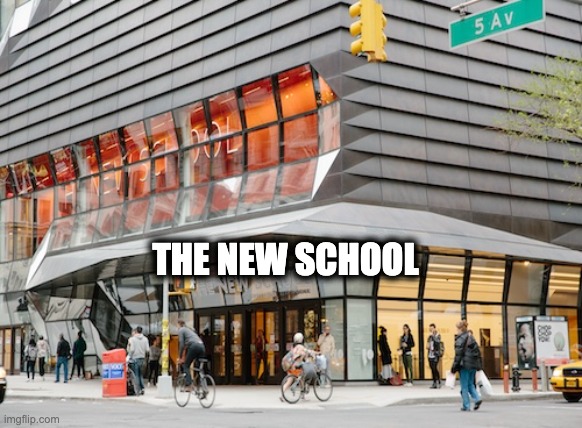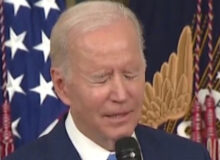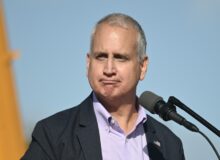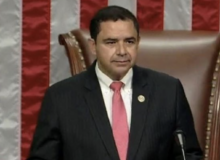Talk about biting the hand that feeds you!
The pro-Hamas students at Manhattan’s New School who recently blocked the entrance to campus trampled the memory of the Zionist scholar who co-founded the university and of the refugees from the Nazi genocide who served as its core faculty for decades.
For several hours on December 4, dozens of extremists physically prevented fellow students from entering, waved Palestinian flags, and falsely accused Israel of committing genocide. One student walking by the pro-Hamas protesters told reporters that they encircled her and shouted accusations about her being a “colonizer.”
The protest was organized by the campus branch of Students for Justice in Palestine, which has praised the October 7 pogrom by Hamas in southern Israel, in which over 1200 Israelis were massacred, tortured, raped, or beheaded, with hundreds more abducted.
Before ditching class and picking up their bullhorns, the students should have taken a few minutes to read up on the history of their own school.
For example, I wonder if they know that the university was co-founded by the philosopher Horace M. Kallen, one of the earliest leaders of the American Zionist movement. Kallen lectured and wrote tirelessly in support of creating a Jewish state in the Holy Land.
The New School’s Jewish roots don’t end there. In the 1930s, when many American universities refused to help German Jewish scholars who were trying to flee the Nazis, the New School stepped up. It created a new division, the University in Exile, for rescuing fugitive professors.
Unlike today’s protesters, who hurl the term “genocide” at anybody they dislike, the refugee scholars who taught at the New School knew from first-hand experience what it’s like to be persecuted by a genuinely genocidal regime.
Although few Jewish refugees were permitted by the Roosevelt administration to enter the United States, a clause in the immigration law admitted foreign scholars outside the strict quota system. The New School used that provision to save 184 of the world’s most brilliant intellectuals. And they, in turn, vastly enriched the university—and the country—with their knowledge and experience.
The refugee faculty included some of the world’s most famous economists, legal scholars, psychologists (such as Gestalt pioneer Max Wertheimer), sociologists (including the founders of the authoritative journal Social Research), and political scientists. Some had served in earlier German governments and lent their expertise to the Roosevelt administration’s New Deal initiatives and, later, America’s war effort.
Refugee Hans Simons began his association with the New School in 1935 as a professor of political science. He became dean of its School of Politics, Director of International Studies, and finally, in 1950, president of the university. The New School had 5,000 students and just a single building at the time.
(Dr. Medoff is the founding director of The David S. Wyman Institute for Holocaust Studies and the author of more than 20 books about Jewish history and the Holocaust. His most recent book, America and the Holocaust: A Documentary History, was published by the Jewish Publication Society of America / University of Nebraska Press. And available on Amazon, as are his other books)Dr. Medoff is the founding director of The David S. Wyman Institute for Holocaust Studies and the author of more than 20 books about Jewish history and the Holocaust. His most recent book, America and the Holocaust: A Documentary History, was published by the Jewish Publication Society of America / University of Nebraska Press. And available on Amazon, as are his other books






